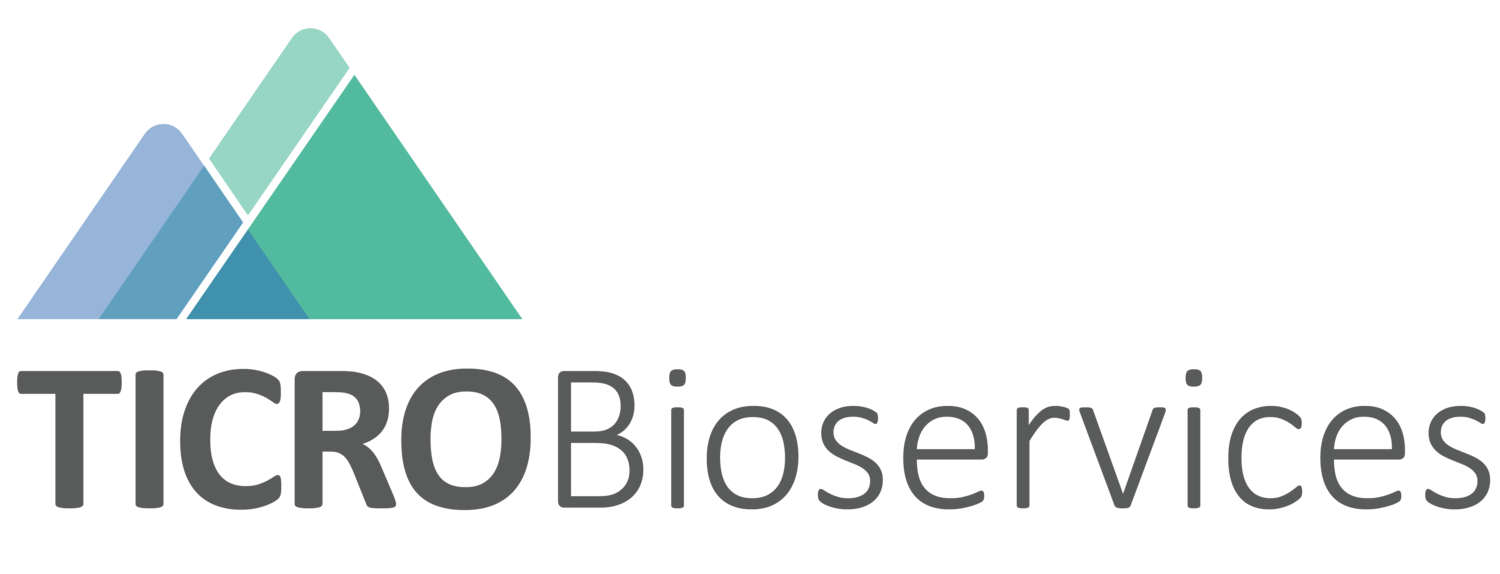Immunohistochemistry (IHC)
Immunohistochemistry is a technique that can be used to detect and visualize specific cells, proteins, and antigens in tissue sections. Using microscopy this visualization allows researchers to observe tissue changes in response to disease states.
Additionally, IHC is useful for detecting and identifying pathogens, including bacteria, viruses, and fungi within tissue samples. Special methods have also been developed to detect target nucleic acids which may be helpful when there is a lack of specific antibody reagents. With the appropriate study design, IHC and microscopy can provide great insight into diseases by characterizing the kinetics of infection, tissue localization of infectious agents, the cell types that respond and their effector molecules (i.e. cytokines), and any gross pathological changes to the tissue or organ system. Based on project needs, TICRO Bioservices utilizes standard chromogenic methods or multiplex immunofluorescent (IF) staining combined with light, fluorescent, or confocal microscopy to detect pathologic changes. Standard histological services are also available, including tissue embedding, sectioning, and staining for follow on pathological analysis.
When working with TICRO Bioservices, customers who require IHC services should expect the following:
Expertise: Trudeau Institute scientists have decades of combined experience in IHC and microscopy including experimental design, protocol development, and optimization
Quality: To ensure the reproducibility and reliability of results, TICRO Bioservices validates all antibody and detection reagents and optimizes staining protocols, often in collaboration with the customer
Customization: Our Team has the capability to adapt standard IHC protocols to accommodate many different sample types and, when needed, tailor a custom solution that meets the customer’s research needs.
Fluorescent microscope image of foamy macrophages infected with Mycobacterium tuberculosis (red) with visible lipid vesicles (green).
Cell nuclei (blue) are stained with Hoechst dye.
Image courtesy of Trudeau Institute Imaging & Histology Core Facility

